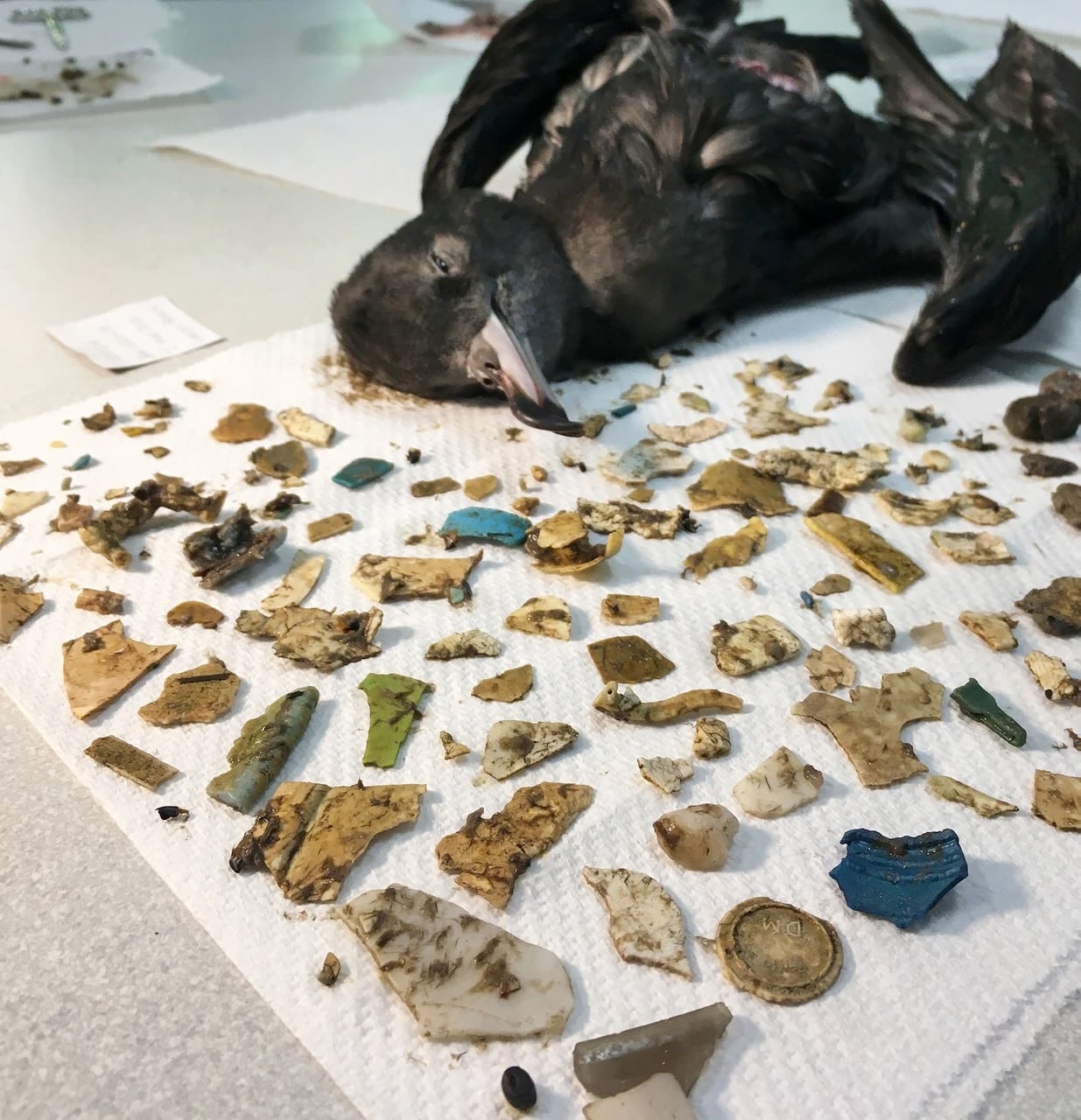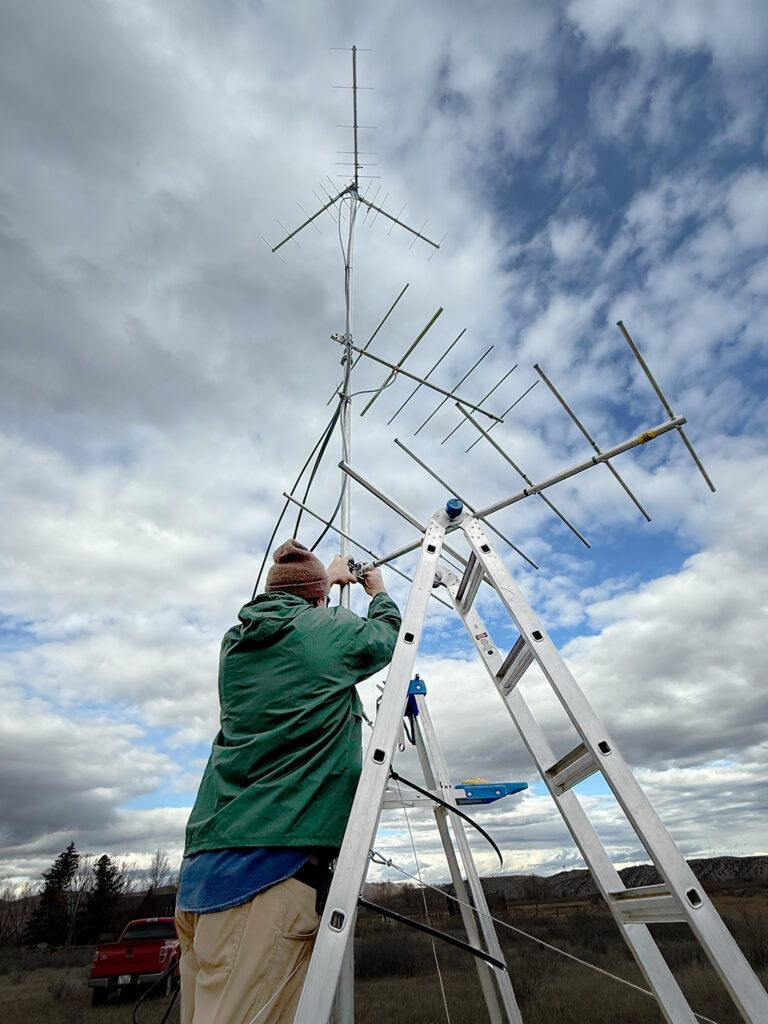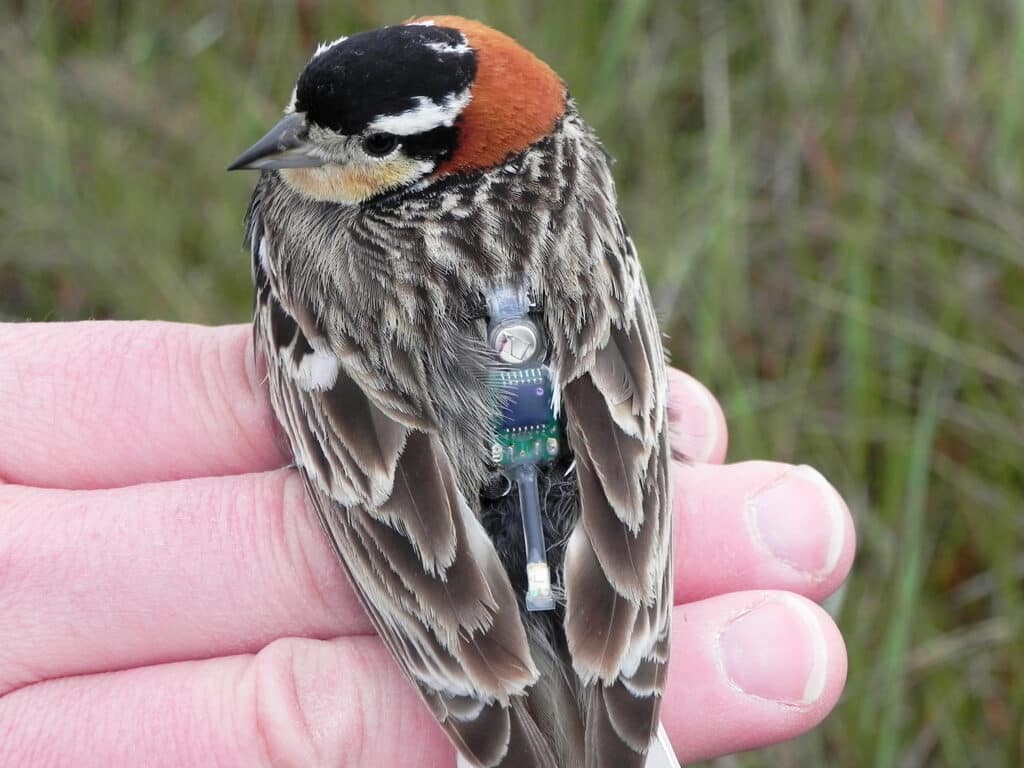Help to Reduce Plastic in Our Environment, Our Birds and Our Bodies!
By Anne Ready, Gallatin Valley Earth Day
More and more evidence is emerging that microplastics are causing great harm to our environment, wildlife and us! Microplastics are being found in the atmosphere, in our hydrologic cycle (on snowflakes), on land (in the dust), and in our oceans and local waterways. They are present in every part of the food web.
This problem has emerged because we use a staggering amount of single-use plastics each year, which does not biodegrade. Instead, it breaks up into small pieces: microplastics.
Most of it is not recycled or not able to be recycled. 950 million tons are shipped overseas annually to be recycled but, in countries like Thailand, up to 80% of this plastic ends up in the ocean instead. These microplastics then end up throughout our environment, including our local rivers. Adventure Scientists, a local Bozeman group, found that in a pilot survey of five sites along the Gallatin River, microplastic particles were found in every sample, some in startlingly high numbers.
How is plastic pollution affecting birds?
According to Cornell Ornithological Labs, at least 80 seabird species ingest plastic, mistaking it for food. By 2050, scientists estimate that 99% of seabird species will have eaten plastic. Scientists have now described a new disease for Flesh-footed Shearwaters: plasticosis. This disease is marked by severe stomach damage from eating little bits of plastic.
How are microplastics affecting our health?
All plastic eventually breaks up into microplastics, and these particles become so small that they can be absorbed in the human body. Scientists have found microplastics in human lung, intestine, blood, testicles, breast milk, and most recently in the human brain—this last one in sizable quantities. Once in the body, the plasticizing chemicals in the particles leach directly into human tissue. Scientists think these chemicals are associated with obesity, diabetes, autism, ADHD, dementia, cancer, and many other chronic disorders.
How can we help?
Everyone can try to limit their use of single-use plastics where feasible. If you live within the city limits of Bozeman, you can help reduce the amount of single use plastics, by voting “YES” on the Bozeman Plastic Ordinance (BPO) on this November’s ballot.
If passed, the BPO will take effect May 1, 2025, and will prohibit businesses within Bozeman city limits from selling or distributing single-use plastic bags and polystyrene foam (e.g., food containers). The BPO will also limit plastic straws and beverage stirrers; items such as these will be available only by request.
Note: Where states and/or cities have limited single-use plastic bags, plastic bag pollution drops on average by 300 bags per person/year. In sum, everyone wins—and Bozeman can win, too.
For more information and links to scientific reporting, visit www.mtplasticfree.com





